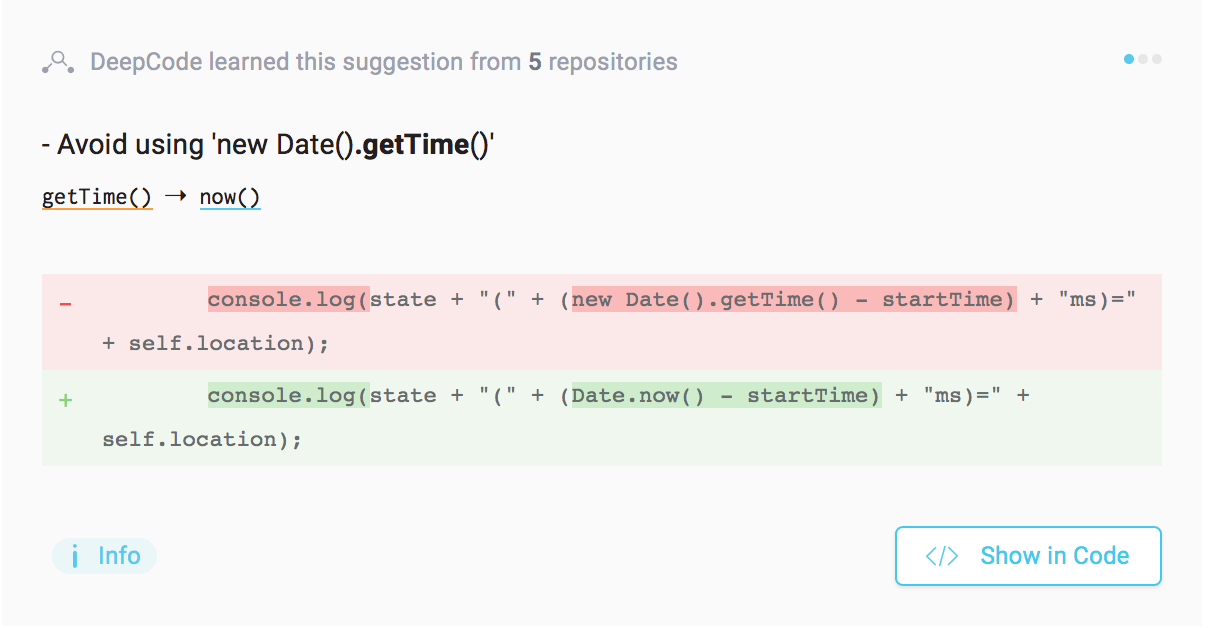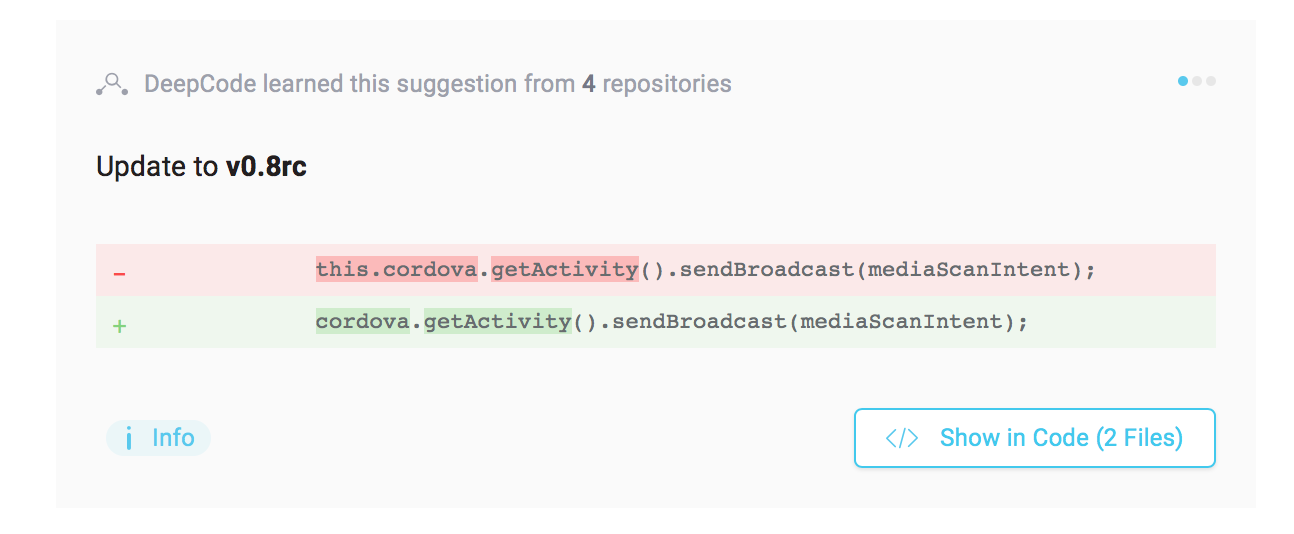Zurich-based DeepCode claims that their system – essentially a tool for analyzing and improving code – is like Grammarly for programmers. The system, which uses a corpus of 250,000 rules, reads your public and private Github repositories and tells you how to fix problems, remain compatible, and generally improve your programs.

Founded by Veselin Raychev, advisor Martin Vechev, and Boris Paskalev, the team has extensive experience in machine learning and AI research. This project is a spinoff from ETH in Switzerland and is a standalone research project turned programming utility.
How does it work? Pretty well. I ran one of my public repositories through the system and received 49 suggestions in 449 files. The fixes range from literal code changes – changing name: String, to name: {type: String}, – to suggestions for code that might be actually missing in function calls. It’s an interesting tool, especially if you need help finding hidden bugs in your code. The advice this tool gives is also surprisingly precise. Because it can build its own recommendations based on large amounts of code it finds things humans might miss.
“We built a platform that understands the intent of the code,” said Paskalev. “We autonomously understand millions of repositories and note the changes developers are making. Then we train our AI engine with those changes and can provide unique suggestions to every single line of code analyzed by our platform.”
“Today we have more than 250K rules and growing daily,” said Paskalev. “Our competition has to manually create rules and the biggest competitor has 3-4,000 rules and they’ve been working for years.
The company is self-funded and recently raised $1.1 million from btov. The founders are serial entrepreneurs. Paskalev worked at Vistaprint and PPAG and Raychev worked for Google and is a researcher in the field of machine learning in programming language semantics.

More than a simple debugger, DeepCode “reads” and tries to compare code to other implementations, giving you best-of-class performance from every line. Now the team just has to get programmers to use it.
“We have a unique platform that understands software code the same way Grammarly understands written language,” Paskalev said. “This unique proposition is positioned us save billions of dollars within the software development community with our first service and then to be on the front end of transforming the industry towards fully autonomous code synthesis.”
from Startups – TechCrunch https://ift.tt/2HQMXiq
Comments
Post a Comment